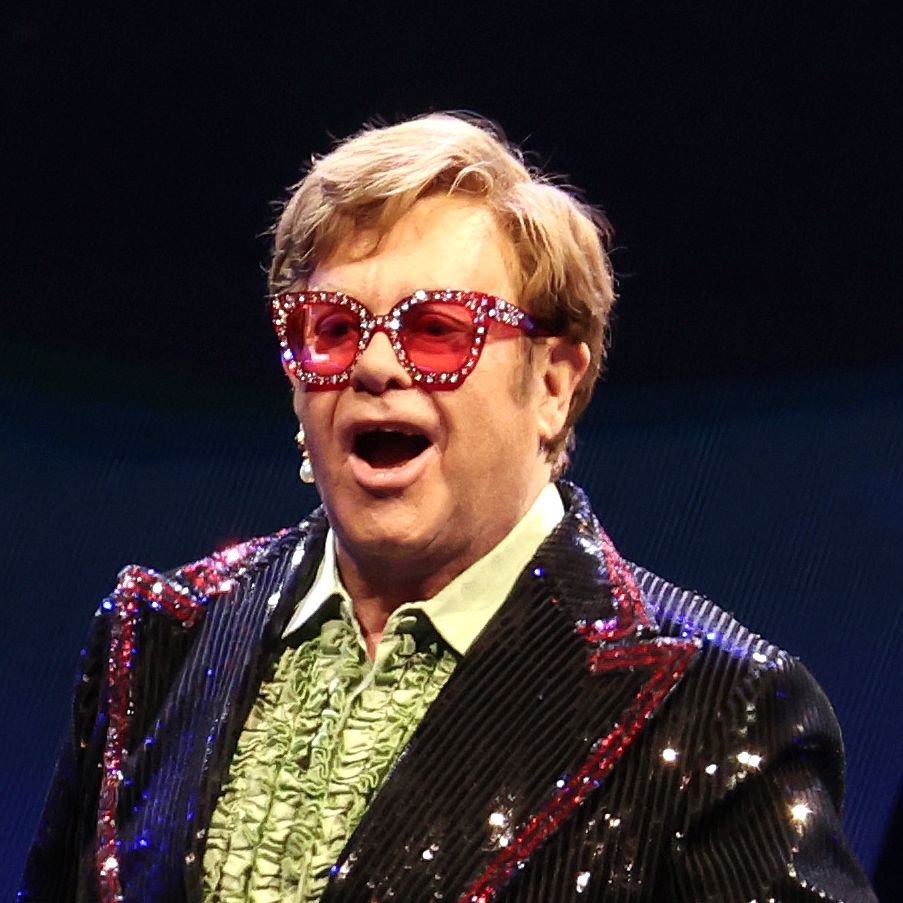Public Lives, Private Battles: Celebrity Stories of Bulimia
Mar 06, 2024
Silent Struggles of Those in Need of Bulimia Help
Suffering from an eating disorder also often means suffering in silence. The profound sense of fear, shame, and isolation that accompanies disordered eating behaviors can make someone struggle to fight off not just the physical toll of the disorder, but also grapple with the intense emotional isolation that comes with it.
The secretive nature of eating disorders can lead to a self-perpetuating cycle of loneliness, with bingeing or restricting being utilized as tools of control to fill the void their feelings of hopelessness have created.
Because this despondency can create such a vast wedge between the outside world and our internal selves, sufferers oftentimes withdraw from friends, family, and their own present reality to escape into the confines of their illness.
The internalized shame can become a cinch in your psyche, suppressing your truth by cultivating a toxic headspace where disclosure can feel impossible.
Lifting the Veil of Secrecy
Breaking out of that self-imposed code of silence can be intimidating, as allowing yourself to be vulnerable is never easy. But seeing others who have lived the same experience and come out the other side is a powerful act of revelation, of showing the world that their struggles haven’t broken them and shouldn’t destroy you either.
Disclosure is a formidable force as it knocks down the walls of isolation, allowing individuals to finally reveal their burdens and connect with others who have walked their same journey.
By bravely stepping out with an eating disorder, individuals not only break free from the chains of shame but also add their names to the face of a collective struggle, encouraging a sense of solidarity in those who share the same difficulties and are looking to not feel alone.
The Unspoken Reality of Being a Celebrity
In the eyes of the everyday person, celebrities are treated as untouchable beings, uninvolved and unburdened by the problems of ordinary people. Though their fame and fortune shield them from many of the harsher realities of living in today’s world, their status in the public eye still comes with a heavy price.
Being famous often means presenting a persona that is beloved by the masses but consequently stripped of any rawness or ugliness that might cause public scandal.
Celebrities are supposed to represent the perfect combination of beauty, talent, and entertainment, and nothing more. And as the spotlight intensifies, so does the pressure to conform to society's unrealistic beauty standards.
This choking superficiality combined with the need to be perfect, unsurprisingly, leads many celebrities down a path of unhealthy food association and disordered eating behaviors.
How Celebrities Impact Our Obsession with Appearances
The constant scrutinizing microscope that emphasizes celebrities' appearances is important to acknowledge in order to understand the impact that body image has in Hollywood and beyond.
The idealistic, irrational standards we expect of the rich and famous turn into and perpetuate the beauty norms in our culture, shaping the way we perceive attractiveness and therefore who we deem worthy of love and attention.
Analyzing our societal image obsession and its negative impacts on both regular people and celebrities is necessary to reform current body image beliefs and advance toward acceptance and inclusivity.
Understanding people where they are and valuing their well-being above their body size ultimately fosters a positive environment that embraces, not rejects.
Famous Faces of Eating Disorder Adversity and Recovery
Many well-known stars have divulged their deeply personal struggles to facilitate an open dialogue about the industry and its insurmountable beauty standards.
Here are just a few of the celebrities who have opened up about their eating disorder battles:
Lady Gaga
Stuart C. Wilson / Getty Images
Worldwide pop superstar Lady Gaga has been known to be extremely unreserved and outspoken during her time in the spotlight, touting unconditional love and support for her fans.
In one example of using her star power for advocacy, she revealed to a young girl struggling with confidence and body image issues that she too had struggled with the same fears when she was younger, resulting in bulimia and purging behaviors.
At the 2012 speaking event, Gaga emphasized to the audience that she wasn’t born with her confidence and that reaching peace with the size of her body, even after recovering from bulimia, was a lifelong challenge that still afflicted her even at her highest peak of popularity.
“I used to throw up all the time in high school. So I’m not that confident,” she said. “I wanted to be a skinny little ballerina but I was a voluptuous little Italian girl whose dad had meatballs on the table every night.”
She also highlighted the ways the celebrity world prodded her deep-rooted insecurities, continuing “Weight is still a struggle. Every video I’m in, every magazine cover, they stretch you — they make you perfect. It’s not real life….”
Her courage to be real about the pressures of the industry and society laid aside her popstar persona to show that those with body image issues were seen, heard, and mattered.
Taylor Swift

Mat Hayward / GC Images
One of the most recognized and influential women in the world, Taylor Swift unveiled parts of her private life in her 2020 Netflix documentary Miss Americana, including her hidden battle with eating disorder tendencies in the wake of overexposure and triggering comments and photos.
“I thought I was just supposed to feel like I was gonna pass out at the end of a show or in the middle of it." She continued: "Now I realize, no, if you eat food, have energy, get stronger, you can do all these shows and not feel it, which is a really good revelation because I’m a lot happier with who I am — I don’t care as much if somebody points out that I have gained weight.”
With her landmark 2023 Eras Tour cementing her as one of the most successful popstars of all time and catapulting her fame to heights never seen before, her ability to influence millions of young fans around the world remains unparalleled.
Given her extensive reach and impact, publicizing her innermost difficulties revealed a side of the megastar that shows that even at the top, insecurities can still manifest and cause real damage.
Her openness to the millions following her sent a message that vulnerability is okay to feel and that talking about your problems can create momentum toward recovering from disordered eating behaviors and living a life worth living.
Zoë Kravitz
Theo Wargo / Getty Images
Best known for her big-picture hits like The Batman, Spiderman: Into The Spiderverse, and Mad Max: Fury Road, movie star Zoë Kravitz laid bare her anorexia and bulimia patterns that took until her late 20s to dismantle.
Daughter to famous parents Lisa Bonet and Lenny Kravitz, the pressure of being born into a family of wealth and beauty ramped up her adolescent fears early. In a 2015 interview with Complex, Kravitz confessed, “I had a really hard time when I was 16, 17, 18. I started with the eating disorder in high school….”
She further elaborated on the context of her eating disorder issues, saying, “I think it was part of being a woman, and being surrounded by [fame]... I think it was definitely about being around that world, seeing that world. I felt pressured.”
Kravitz’s eventual breaking point would come after being cast as an anorexic character in the 2013 film The Road Within.
After dropping to a grim 90 pounds for the role reignited her disordered eating demons, she finally felt called to turn her life around and enter a healthier mindset away from the habits that controlled her.
Kravitz’s exploration of her insecurities and the eating disorder patterns that were “easy to fall back into” demonstrated her willingness to confront her past cycles of beliefs, challenging the narrative that remission wasn’t possible and showing that even if you take a few steps back, recovery will always be within reach.
Elton John
Simone Joyner / Getty Images
It’s not often that the male side of eating disorder stories are told, let alone from one of the most famous singers and songwriters in the world.
Though men compose a quarter of anorexia and bulimia cases, the stigma attached to their eating disorders tends to be even more isolating, leading to greater chances of being underdiagnosed and untreated.
That’s why world-renowned musicians like Elton John divulging their personal bulimia struggles can create such a world of difference in how we approach the multifaceted, intersectional dilemma of eating disorder recovery.
In 2019, Elton John’s biographer Philip Norman recounted a tell-all he had had with the legendary artist, revealing the extent of problematic behavior John exhibited during his initial rise to fame in the 70s.
“I was bulimic for six years. It was all through being paranoid about my weight but not able to stop eating. So in the end I’d gorge, then make myself sick.” John continued: “If I was eating a curry, I couldn’t wait to throw it up so that I could have the next one.”
Having one of the most famous male musicians of the last half-century be candid about his past struggles with bulimia is not only monumental for eating disorder awareness in general but also important in starting a much-needed conversation on how it can affect men as well.
Other Famous Names
Countless other celebrities have been brave in coming forward about their experiences, including:
- Demi Lovato
- Kesha
- Jane Fonda
- Lindsey Lohan
- Portia de Rossi
- Lilly Collins
How Honesty Can Change the Narrative: An Influencer’s Impact
While the personal stories of mainstream celebrities garner the most attention from the tabloids, the power of honest disclosure by those sharing their lived experience on social media has generated a wave of its own.
Eating disorder recovery accounts like @_learningtoliv on Instagram curate a safe space to examine, educate, and heal disordered eating behaviors, bringing realistic recovery tips and inspiration to young adults online.
Liv, the 21-year-old behind the account, created the space to increase awareness of eating disorders in her home country of the United Kingdom, seeing that the current landscape has been lacking in certain areas.
“Eating disorder treatment, especially in the U.K., is also incredibly hard to acquire so I wanted to try and help others through what I had been through… if I could help someone else then there would be a reason for all the torment I went through.”
Though she felt a mixture of emotions publicizing her truth, including feeling scared, terrified, and vulnerable, the reception to her posts has been overwhelmingly positive.
“The love and support I’ve received has been like nothing else I’ve ever experienced. In all honesty, I don’t think I would have got to the point in my recovery that I am at now without the incredible support I’ve received and the wonderful friends I’ve made along the way.”
Liv’s openness about her own private struggles has created a community for hundreds of people, all connected by the same thread of hope and recovery.
For those still lost in loneliness, being recognized and understood can bring crucial relief; burdens become easier with the more hands that hold them.
As for Liv, her journey isn’t over, it’s only just begun. In her pursuit of remission for all, her parting message is clear: “I promise you that this isn’t going to be how your story ends.”
With Peace,
Whitney Chase
Whitney Chase is the Writer and Content Manager for Sarah Lee of Sarah Lee Recovery. She holds her degree in Psychology from Georgia State and has a strong passion for the mental health field, writing, and advocacy work.
Posted on March 6th, 2024.
Struggling with Bulimia? Claim your complimentary offer now! Dive into a 25-minute video presentation outlining our most effective strategies for addressing purging behaviors. Click Here.






